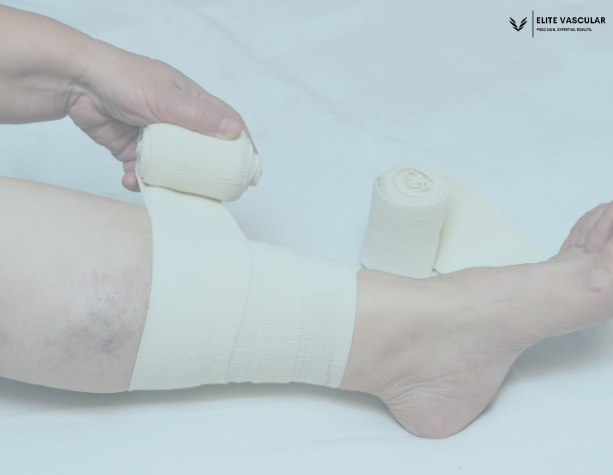- admin
- 0 Comments
Introduction
Individuals who have taken the vein removal are often concerned about the possibility of re-growing the vein. Once a vein is completely finished, it cannot be re-produced. The circulatory system includes veins. Once they are removed by surgery or treated in ways such as sclerotherapy or laser therapy, they may not be re-produced.
Once a vein is extracted, the body can redirect blood circulation to other, healthy veins. Vein removal techniques are often effective in treating problems like varicose veins or spider veins. The body can adjust the loss of a vein by redirecting the blood flow to other veins nearby.
Veins may not be re-generated once removed, so it is important to avoid the formation of new varicose veins or spider veins. A person can do this by following a healthy lifestyle, which includes constantly physical activity, good food and reducing sitting or standing for a long time. Compression stockings can help maintain proper blood circulation and reduce the risk of developing new veins problems.
Genetics and lifestyle might cause varicose veins to return
If your family has a history of varicose veins, more may develop after treatment. They won’t be the same varicose veins; instead your body can grow new. The best strategy to prevent varicose veins in the future is to carefully monitor and check legs for symptoms or repeated varicose veins, then to treat them before they get worsen. For people with strong family history and risk factors, a lifetime commitment to monitor and treat varicose vein disease may be needed.
There are additional lifestyle changes that can motivate you to develop new varicose veins after treatment. Staying obesity, smoking and long sitting or standing increases the chances of developing new varicose veins. A vein specialist can help you to modify the possibility of developing new varicose veins.
Let’s look at some reasons that this could happen:
There was no vein assessment or it wasn’t comprehensive: There was no vein assessment or it was incomplete. Not all varicose vein operations are equal. Some methods are preferable for damaged veins depending on the reason. A vein assessment may discover the source of your sick veins and other health variables to help you choose the best therapy. Always have a vein health checkup, and choose a doctor that utilizes Doppler ultrasound for precise findings.
Doctor may mistreat your veins: Without a complete venous assessment, your doctor may also mistreat your veins. A vein evaluation is a vital a part of the vein remedy method, because simplest by figuring out the cause and quantity of the harm can the physician successfully deal with the veins. Make positive you figure with a physician who’s thorough and careful and who will locate the right technique for you in place of applying a multifunction solution.
Doctors not experienced and board certified: Maybe a doctor is extremely skilled in one type of vein treatment. If that’s not the right kind for your veins, your end result won’t be optimal. Before choosing vein therapy, choose a doctor with expertise in several operations.
Family history and lifestyle might affect vein therapy success: If your parents and grandparents suffered from varicose veins, you may experience them throughout your lifetime, despite the best treatment. Further, lifestyle factors like smoking, main a sedentary life-style, sitting or standing for long periods of time, and being overweight can growth your threat of forming new varicose veins, even after successful remedy. Talk to your physician to study what you can do to reduce your hazard of varicose veins.
Make sure your vein specialist (board certified) and knows the best vein closure methods
Not all treatment methods are equivalent. Newer, less invasive treatments are often more successful than previous surgical procedures such as vein stripping. Traditional surgery may lead to regenerate the development of new varicose veins in up to 50% of instances, when this occurs, the veins regenerate without any valves present. Varicose veins may recur after treatment and may be in a more severe state than before. While not universal, some individuals may have worse symptoms post-surgery.
Advanced minimally invasive methods including endovenous radiofrequency and laser ablation have shown to be more efficient. Their permanent closure rates exceed 90% over a 5-year period. These procedures are very reliable, with a regeneration risk of less than 5%.
Stop the recurrence of varicose veins
How can varicose veins be averted from recurring after treatment? It’s important to address the basic causes of the disease. To save you this condition, people have to adjust lifestyle such as retaining a healthy weight, acting everyday sports & exercise, warding off sitting or status for a long term and the usage of compression stockings. Treating underlying medical issues like high BP, diabetes or heart disease can also assist save you the recurrence of varicose veins.
What to do if varicose veins reappearance after treatment
If the varicose veins return, it is possible that more treatment can be necessary. The therapy may include either a repetition of the treatment that become formerly administered or the implementation of a specific technique, depending on the diploma of severity of the issue. In lieu of waiting for a more comprehensive amount of work to be necessary, we are able to do minor maintenance chores during an annual visit thanks to this opportunity.
Varicose veins are not always treated with medication. Adjustments to one’s way of life, as mentioned, have the potential to typically alleviate discomfort and arrest the progression of the condition. It may be necessary to seek medical treatment for varicose veins if they are causing significant pain, edema, or other clinical manifestations.
Ask a vein consultation with our vein experts
If you have any vein problems, our top vein specialist board certified Nirman Tulsyan will give you the proper solution. Book an appointment by visiting our website or call us at +1(973-975-4447).
